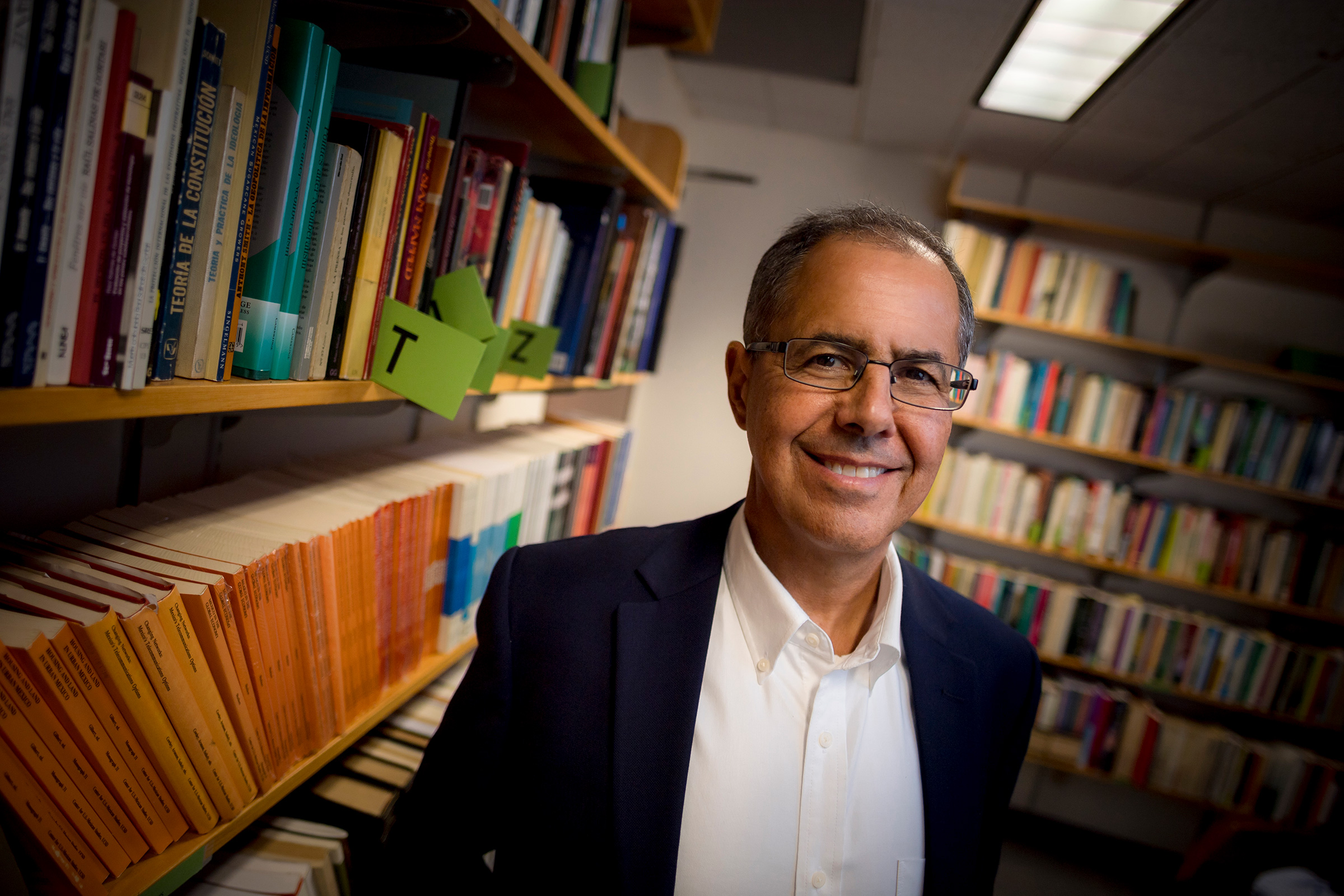
By:
- Anthony King
Published Date
By:
- Anthony King
Share This:
School of Global Policy and Strategy Announces New Director for Center for U.S.-Mexican Studies

Photo by Erik Jepsen/UC San Diego Publications
Building on its position as an internationally recognized expert on the Americas, the UC San Diego School of Global Policy and Strategy has appointed Rafael Fernandez de Castro as the new director of its Center for U.S.-Mexican Studies.
Following a large-scale, international search, Fernandez de Castro comes to UC San Diego as an expert in Latin American studies, the bilateral relationship between the United States and Mexico, and Mexican foreign policy. He is the founder of the School of International Relations at the Instituto Tecnologico Autonomo de Mexico (ITAM) in Mexico City, and served as principal foreign policy advisor to former Mexican President Felipe Calderon.
“Rafael Fernandez de Castro brings an unprecedented level of academic and public-policy expertise in U.S.-Mexico relations. He will be a strong leader for our Center for U.S.-Mexican Studies, and an invaluable asset to our current and future graduate students,” said Gordon Hanson, acting dean of the School of Global Policy and Strategy. “We address the crucial societal challenges of the 21st century, and how our students understand issues related to Mexico is of critical importance.”
In addition to directing the Center for U.S.-Mexico Studies, Fernandez de Castro will be a faculty member at the School of Global Policy and Strategy. He will begin the 2017 – 2018 academic year teaching “U.S.-Mexican Relations” and “Drugs and Violence in Latin America.”
As director, Fernandez de Castro said he will continue the center’s impactful research on cross-border industries, public health, and education and migration. He will strive to strengthen its reputation as the go-to source for serious academic research that can be applied to the creation, implementation and evaluation of public policy. Spearheading the university’s engagement with Mexico, the center has one of the largest residential fellowship programs in the U.S. for research on Mexico, welcoming more than 650 academics at UC San Diego to date.
He said he is also looking forward to collaborating with other research centers on campus, such as the school’s 21st Century China Center, to strengthen the analysis of North American relations in the Pacific context.
“The Center for U.S.-Mexican Studies is the key research center in the border region for trans-Mexico relations, and I am honored to lead a strong, established team of advocates for Mexico and the U.S.-Mexico relationship,” Fernandez de Castro said. “These are challenging times for the United States and Mexico, but we recognize that this is the moment for us. NAFTA, security, education, migration, the environment — these are all key to the binational region. We will continue to promote academic ideas around these, and additional, important topics.”
Melissa Floca, who has been serving as interim director of the center, will move into the role of chief strategy officer. “We are excited to welcome Rafael to the USMEX team at this crucial time in U.S.-Mexico relations,” she said.
Fernandez de Castro received his Ph.D. in political science from Georgetown University, his master’s degree in public policy from the University of Texas at Austin, and his bachelor’s degree in social sciences from ITAM. He is a current member of multiple international organizations, most notably the Mexican Council on Foreign Relations, the Woodrow Wilson Center for International Scholars and the World Economic Forum.
From 2011 to 2013, Fernandez de Castro served as project director for the United Nations Development Programme Human Development Report for Latin America before accepting an endowed chair at the Maxwell School of Citizenship and Public Affairs at Syracuse University. Bilingual in Spanish and English, he is the founder and former editor of Foreign Affairs Latin America and launched the U.S.-Mexico Futures Forum with the University of California Berkeley.
A two-time Fulbright scholar and regular contributor to numerous Mexico-based policy publications, he has written and co-edited 23 books on U.S.-Latin America relations and Mexico foreign policy, including 2016’s “Contemporary U.S.-Latin American Relations: Cooperation or Conflict in the 21st Century?” and 2009’s “United States and Mexico: Between Partnerships and Conflict,” both with Jorge Dominguez.
Fernandez de Castro’s current research includes a working manuscript on leadership and decision-making in Mexican foreign policy. He also serves as a principal investigator for the project “Co-constructing Security Provision in Mexico: A Methodology and Action Plan from Communities to the State.”
The research, funded by Mexico’s National Council of Science and Technology and the United Kingdom’s Economic and Social Research Council, works with community, civil society and government actors to build shared understanding of the impacts of violence, insecurity and security provision in order to develop local, ground-up agendas in four Mexico cities affected by violence: Apatzingan, Acapulco, Guadalupe and, locally, Tijuana.
The Center for U.S.-Mexican Studies, based at the UC San Diego School of Global Policy and Strategy, was founded in 1980 to study Mexico and the full range of issues affecting economic, social and political relations between Mexico and the U.S. The center is privileged with the unique opportunity to engage in research on Mexico, Mexicans in the U.S. and the U.S.-Mexico relationship from its location on the border.
Share This:
You May Also Like
Stay in the Know
Keep up with all the latest from UC San Diego. Subscribe to the newsletter today.


